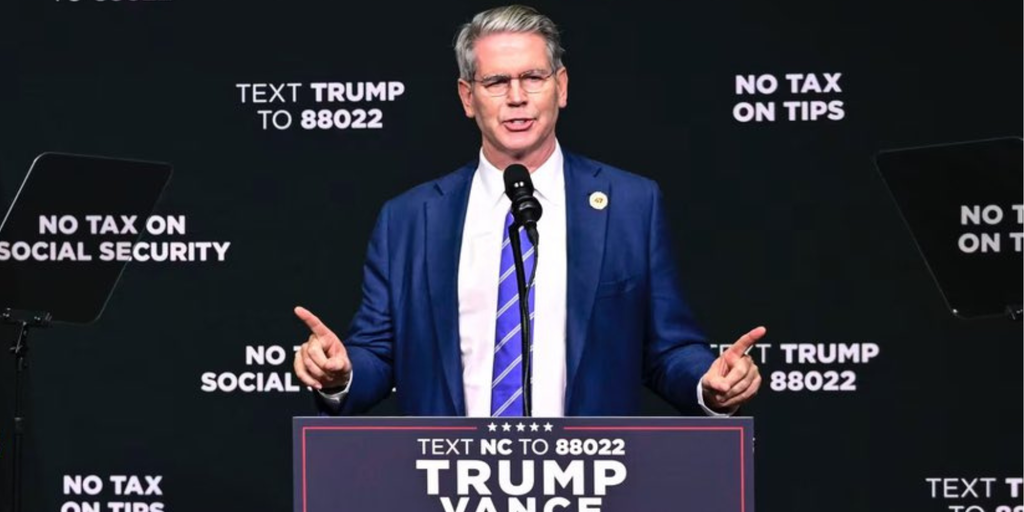Scott Bessent's Treasury Ambitions Unveiled
Scott Bessent, nominated as Treasury Secretary by President-elect Donald Trump, faces intense scrutiny and divestment of significant assets to comply with federal ethics guidelines.
Published January 14, 2025 - 00:01am

Image recovered from decrypt.co
With his nomination as Treasury Secretary, Scott Bessent, a billionaire hedge fund manager, is at the center of financial and political scrutiny. As he prepares for the role under President-elect Donald Trump, Bessent is navigating complex ethical waters by divesting various assets to eliminate any potential conflicts of interest. Key among these is his interest in BlackRock's Bitcoin ETF, the world's largest spot Bitcoin fund. This divestment not only aligns with federal ethics guidelines demanding nominees to sell specific holdings within 90 days of Senate confirmation but also showcases Bessent's commitment to maintaining ethical governance.
The crypto community has shown interest in Bessent's involvement largely linked to his substantial stake in BlackRock's ETF, valued up to $500,000. His overall portfolio disclosed by the U.S. Office of Government Ethics is estimated at $521 million and comprises diverse investments, including U.S. Treasury bills, major ETFs, hedge funds, and commodities. Notably, Bessent plans to resign from Key Square Group, the hedge fund he founded, to further distance himself from any potential conflicts.
Adding to the complexity of Bessent's path to confirmation, Senator Elizabeth Warren has raised questions about his lack of government experience. In a comprehensive 31-page letter, she has demanded clarity on his policies and asked him to address concerns in areas like taxes, trade, and financial regulation. Her criticism underscores the political challenges Bessent must overcome even as he supports Trump's economic agendas such as tax cuts, deregulation, and cryptocurrency adoption.
Compounding these challenges, Trump's administration is marked by its inclusion of several billionaire appointees. Critics argue that this raises concerns about the ability of wealthy individuals to govern without personal biases. Apart from selling part of his crypto assets, Bessent is reportedly divesting other holdings, including a Charleston mansion and his stakes in several investment entities to further sever ties with personal financial interests.
Bessent's nomination is also under scrutiny due to his past role as CIO at Soros Fund Management, where he managed assets for the billionaire philanthropist, George Soros. His extensive investor background is a point of contention for those skeptical of financial magnates occupying key governmental positions. Through these divestments, Bessent hopes to allay fears about his ability to govern without bias, adhering to a framework that Trump himself followed regarding personal business management while in office.
While Bessent's financial divestment is crucial, the nomination process also raises fundamental questions about transparency and ethics in governance. His steps to prevent conflicts of interest serve as a litmus test for the ethical standards of Trump's administration. Republican supporters view his financial prowess as an asset leveraging a golden economic era, while others voice concerns over widening inequality and lack of representation of the middle class's challenges.
As the confirmation hearing date of January 16 approaches, this disconnect between perception and policy in Trump's administration amplifies the challenges Bessent faces. In divesting critical assets, he not only complies with federal guidelines but attempts to assure the public of his integrity. Nonetheless, the broader discourse surrounding his nomination continues to reflect the persistent political battle lines drawn over ethics, economy, and wealth in American politics.






